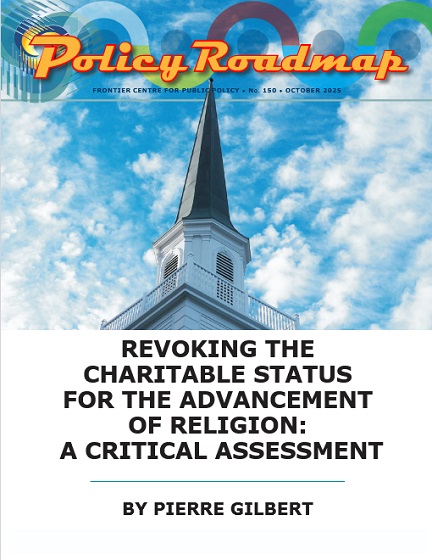Health
Keep The Conversation Going – Let’s Talk Mental Health
By Sheldon Spackman
Today is “Bell – Lets Talk” day and Central Albertans are joining millions of Canadians across the country in keeping the conversation going about the importance of mental health and ending the stigmas sometimes associated with mental illness.
Officials with the Canadian Mental Health Association say mental illness is increasingly recognized as a serious and growing problem. It is estimated that 1 in 5 Canadians will develop a mental illness at some time in their lives. Many more individuals such as family, friends and colleagues are also affected.
They add that mental health means striking a balance in all aspects of one’s life: social, physical, spiritual, economic and mental. At times, the balance may be tipped too much in one direction and one’s footing has to found again. Mental health is as important as physical health. The World Health Organization (WHO) defines health as “a state of complete physical, mental and social well-being and not merely the absence of disease or infirmity”.
CMHA officials offer these facts on Mental Health:
- Mental illness affects people of all ages, educational and income levels, and cultures.
- Approximately 8% of adults will experience major depression at some time in their lives.
- Suicide is one of the leading causes of death in both men and women from adolescence to middle age.
- A complex interplay of genetic, biological, personality and environmental factors causes mental illnesses.
- Almost one half (49%) of those who feel they have suffered from depression or anxiety have never gone to see a doctor about this problem.
- The economic cost of mental illnesses in Canada for the health care system was estimated to be at least $7.9 billion in 1998 – $4.7 billion in care, and $3.2 billion in disability and early death.
- An additional $6.3 billion was spent on uninsured mental health services and time off work for depression and distress that was not treated by the health care system.
- The total number of 12-19 year olds in Canada at risk for developing depression is a staggering 3.2 million.
- Suicide is among the leading causes of death in 15-24 year old Canadians, second only to accidents; 4,000 people die prematurely each year by suicide.
- Once depression is recognized, help can make a difference for 80% of people who are affected, allowing them to get back to their regular activities.
- In Canada, only 1 out of 5 children who need mental health services receives them.
Addictions
BC premier admits decriminalizing drugs was ‘not the right policy’

From LifeSiteNews
Premier David Eby acknowledged that British Columbia’s liberal policy on hard drugs ‘became was a permissive structure that … resulted in really unhappy consequences.’
The Premier of Canada’s most drug-permissive province admitted that allowing the decriminalization of hard drugs in British Columbia via a federal pilot program was a mistake.
Speaking at a luncheon organized by the Urban Development Institute last week in Vancouver, British Columbia, Premier David Eby said, “I was wrong … it was not the right policy.”
Eby said that allowing hard drug users not to be fined for possession was “not the right policy.
“What it became was a permissive structure that … resulted in really unhappy consequences,” he noted, as captured by Western Standard’s Jarryd Jäger.
LifeSiteNews reported that the British Columbia government decided to stop a so-called “safe supply” free drug program in light of a report revealing many of the hard drugs distributed via pharmacies were resold on the black market.
Last year, the Liberal government was forced to end a three-year drug decriminalizing experiment, the brainchild of former Prime Minister Justin Trudeau’s government, in British Columbia that allowed people to have small amounts of cocaine and other hard drugs. However, public complaints about social disorder went through the roof during the experiment.
This is not the first time that Eby has admitted he was wrong.
Trudeau’s loose drug initiatives were deemed such a disaster in British Columbia that Eby’s government asked Trudeau to re-criminalize narcotic use in public spaces, a request that was granted.
Records show that the Liberal government has spent approximately $820 million from 2017 to 2022 on its Canadian Drugs and Substances Strategy. However, even Canada’s own Department of Health in a 2023 report admitted that the Liberals’ drug program only had “minimal” results.
Official figures show that overdoses went up during the decriminalization trial, with 3,313 deaths over 15 months, compared with 2,843 in the same time frame before drugs were temporarily legalized.
Health
Colorado gave over 500 people assisted suicide drugs solely for eating disorders in 2024

Fr0m LifeSiteNews
The lawsuit says Colorado’s assisted suicide law violates federal protections by allowing physicians to prescribe lethal drugs to some disabled patients under circumstances where others would be directed to mental health care
Doctors in Colorado are pushing assisted suicide on hundreds of patients solely because they suffer from eating disorders, according to a patients’ advocate sharing the harrowing story of one such case.
Writing in the Denver Post, Patient Rights Action Fund and Institute for Patient Rights executive director Matt Vallière tells the story of his friend Jane Allen, who battled anorexia “most of her life,” who in 2018 was diagnosed with “terminal anorexia,” a relatively recent diagnosis which has been criticized as overly broad and dangerous.
Her eating disorder doctor, Jane wrote, “would ‘make an exception’ for me and ‘allow’ me to die, if that was my choice. It didn’t feel like my choice – I felt coerced and spent an incredibly agonizing months in an assisted living facility.” She eventually received the suicide drugs, but was saved by her father winning a guardianship order and having the drugs destroyed.
“I ate just enough to not die right away. And then I ate more,” Jane wrote. “I weaned off the morphine and all the other hospice drugs that kept me in such a fog. I was getting better, and then I was told that I was too much of a liability and dropped from the clinic. I moved from Colorado to Oregon. I have a job that I love, a new puppy, and a great group of friends. I’m able to fuel my body to hike and do the things I love. I’m repairing my relationship with my family, and I have a great therapist who is helping me process all of this. Things obviously aren’t perfect, and I still have hard days. But I also have balance, and flexibility, and a life that is so much more than I was told would ever be possible for me.”
Jane ultimately passed away due to complications from her years of anorexia, which Vallière wonders could have been prevented by not detouring her down the terminal anorexia route. Regardless, her story details how easily similar cases can end in suicide for people without people willing to fight to give them hope. Live Action notes that last year, Colorado saw a record number of people, 510, prescribed suicide drugs solely for dietary disorders.
“What we do know is that these laws are not so rosy as the propaganda would have you believe,” Vallière writes, adding “there has been and will be more collateral damage in people like Jane or Coloradan Mary Gossman, who was told by a nationally renowned Denver eating disorder treatment facility, ‘there’s nothing we can do for you,’ which qualified her for lethal drugs under the law. She’s in a better place now and has joined as a plaintiff in a lawsuit to overturn the law. So, I ask: how many collateral deaths are acceptable to you?”
That lawsuit says that Colorado’s so-called “medical aid-in-dying” or assisted suicide law violates federal protections by allowing physicians to prescribe lethal drugs to some disabled patients under circumstances where others would be directed to mental health care, by “assum[ing] that a request for assisted suicide is not an indication of a mental disorder, when other Colorado laws make precisely the opposite assumption for virtually everyone else.”
Twelve U.S. states plus the District of Columbia allow assisted suicide. In April, however, a bill to legalize euthanasia failed in Maryland.
As Vallière has previously argued elsewhere, current euthanasia programs in the United States constitute discrimination against patients with life-threatening conditions in violation of the Americans with Disabilities Act, as when a state will “will pay for every instance of assisted suicide” but not palliative care, “I don’t call that autonomy, I call that eugenics.”
Live Action’s Bridget Sielicki further notes that “because a paralytic is involved, a person can look peaceful, while they actually drown to death in their own bodily secretions. Experimental assisted suicide drugs have led to the ‘burning of patients’ mouths and throats, causing some to scream in pain.’ Furthermore, a study in the medical journal Anaesthesia found that a third of patients took up to 30 hours to die after ingesting assisted suicide drugs, while four percent took seven days to die.”
Support is available to talk to those struggling with thoughts of ending their lives. The Suicide & Crisis Lifeline can be reached by calling or texting 988.
-

 Energy2 days ago
Energy2 days agoIndigenous Communities Support Pipelines, Why No One Talks About That
-

 Alberta2 days ago
Alberta2 days agoOil Sands are the Costco of world energy – dependable and you know exactly where to find it
-

 Business2 days ago
Business2 days agoFinance Committee Recommendation To Revoke Charitable Status For Religion Short Sighted And Destructive
-

 International2 days ago
International2 days agoNumber of young people identifying as ‘transgender’ declines sharply: report
-

 Alberta2 days ago
Alberta2 days agoThe Technical Pitfalls and Political Perils of “Decarbonized” Oil
-

 National20 hours ago
National20 hours agoDemocracy Watch Renews Push for Independent Prosecutor in SNC-Lavalin Case
-

 Health2 days ago
Health2 days agoColorado gave over 500 people assisted suicide drugs solely for eating disorders in 2024
-

 Censorship Industrial Complex1 day ago
Censorship Industrial Complex1 day agoCanada’s privacy commissioner says he was not consulted on bill to ban dissidents from internet






